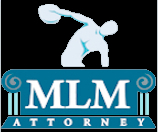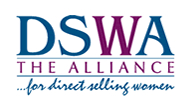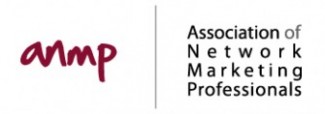Minkow Pleads Guilty to Conspiracy/Fraud
Robert FitzPatrick to be Tried for Libel
Barry Minkow, who produced a series of elaborate, well funded attacks on a number of M.L.M. companies between 2007 and 2009, formally pled guilty last week to Conspiracy to Commit Securities Fraud related to his attacks on non-MLM real estate developer Lennar Corp. Although it’s been known for days that Minkow was to plead guilty, details of his offence have only now been made public.
According to numerous news reports and the FBI’s own press release, Minkow:
“…admitted that he abused his relationship with federal law enforcement agencies to report false allegations of criminal conduct purportedly committed by Lennar and its management. Once Minkow confirmed that his allegations had successfully induced law enforcement to open a criminal investigation, Minkow allegedly used that knowledge and information to trade Lennar securities for his own benefit.”
In other words, he convinced the FBI to investigate Lennar based on his false and misleading anti-Lennar reports, and once he learned of this inside information he then purchased put options on Lennar anticipating the FBI investigation would eventually go public and Lennar’s stock would plummet. Besides the fact this is “insider trading” (what put Martha Stewart in prison), Minkow also purchased his options secretly and denied under oath that he had ever “shorted” Lennar stock (that is, invested in such a way that he’d make money by their stock price dropping).
A great recap of the story can be found here:
http://blogs.laweekly.com/informer/2011/03/minkow_duped_fbi_hurt_lennar.php
Also, prolific anti-MLM critic Robert FitzPatrick, who is founder and chairman of the Pyramid Scheme Alert organization, had his SLAPP[1] motion denied in part related to Medifast’s libel suit against him. FitzPatrick was hired by Barry Minkow to assist in his production of anti-Medifast reports, a public M.L.M. company that Minkow had also shorted. Minkow and FitzPatrick claimed, among other things, that Medifast’s M.L.M. division, Take Shape for Life (TSFL) was an illegal pyramid scheme. The Medifast complaint alleged FitzPatrick had libeled both Medifast and TSFL as well as Medifast Executive Chairman and TSFL co-founder Bradley MacDonald. The court ruled in favor of Fitzpatrick and dismissed him from any libel charge against MacDonald personally, but did allow the libel charge to go forward related to FitzPatrick’s claim that TSFL violated California’s penal code 327 against “endless chain” pyramid schemes.
Also named in Medifast’s libel suit were Barry Minkow himself along with ex-IBizReporting.com partner William Lobdell and not quite as prolific anti-MLM blogger Tracy Coenen. Minkow’s, Lobdell’s and Coenen’s SLAPP motions were all granted.
Online reports to the contrary, fellow PSA co-founder and even more prolific anti-MLM critic Jon Taylor did not directly participated in Minkow’s Medifast or Lennar attacks and has not been named in either lawsuit.
Commentary:
There’s a lot of interesting twists and angles to this case. Minkow and Coenen both produced commentary that clearly implied Medifast was operating as an illegal pyramid or Madoff-like Ponzi scheme, but the court essentially said that’s their First Amendment right to say as long as its their opinion, based on how Medifast appears to them, and they don’t specifically declare Medifast to be operating illegally. Although Coenen did cleverly pose her accusations as questions, or indirectly by letting Minkow and FitzPatrick do her dirty work and then quoting them, Minkow was over the top in his numerous, matter-of-fact declarations that Medifast was operating an illegal pyramid or Ponzi scheme in violation of the law.
The same thing happened in Usana’s civil suit against Minkow (now settled). The court ruled in favor of Minkow’s SLAPP suit[2] in spite of him having publicly declared Usana to be an “evil”, “fraudulent”, “illegal pyramid” that was a “crime in progress” and “doomed to fail” — because it was his opinion, based on how they appeared to him. Which begs the question, what exactly does someone have to say about an M.L.M. company for it to be considered libel by a California judge? The legal definition of libel requires a statement that can be “proven false”. That is, someone’s opinion that your business operation “looks like” a pyramid scheme can’t be proven false. If someone says your business is, in fact, an “illegal” pyramid scheme and sites the specific law it is violating, that can be proven false. In FitzPatrick’s case his undoing involved his specific declaration that Medifast violated CA penal code 327 against “endless chain” schemes. It would seem that the rule all anti-MLM critics need to follow now is, say the MLM company is an “evil”, “fraudulent”, “illegal pyramid” that is a “crime in progress” and “doomed to fail” – just don’t specify what penal code they violated. But hold on. Barry Minkow did, in fact, directly and specifically accuse Usana of violating California’s code 327.[3] Yet, the same California court (although within a different judge’s courtroom) ruled in favor of Minkow’s SLAPP suit — for making the identical set of claims that FitzPatrick has made against Medifast!
Minkow hired FitzPatrick to write a report that focuses on the similarities between Medifast and Bernie Madoff’s Ponzi scheme. In that same report Minkow asserted that some of Medifast’s products had excessively high levels of lead in them and “were in clear violation of California’s Proposition 65”. The analysis was conducted by product liability attorney Christopher Grell, who also claimed to have found excessive levels of lead in the products of Minkow targets Herbalife, Usana and Nu Skin.[4] It was always curious how Minkow and Grell only found high levels of lead in publicly traded MLM companies that Minkow had a short position in. Mr. Grell also represented Robert FitzPatrick in defense of Medifast’s lawsuit against him.
So, besides the fact Minkow declared Medifast is violation of California’s Prop 65, he also claimed Medifast’s TSFL division was, like Usana, and just as FitzPatrick had claimed, an “endless chain scheme” in violation of California Penal Code 327:
http://www.marketwaveinc.com/audiolibrary/MinkowMedifastComments.mp3
Although Minkow does blunder by referring to California’s “endless chain” code “373”, we can be fairly certain he actually meant code 327. Code 373 is California’s “Noisy Neighbor” law. Of all the things Minkow accused Medifast of, being too loud was not one of them.
“For Medifast Inc. to defend endless chain pyramid allegations by stating its proud affiliation with the Direct Sellers Association would be the moral equivalent of Bernie Madoff saying that he attended the Charles Ponzi School of Investment Advisors.”
— Barry Minkow
So it’s confusing that Medifast’s libel suit against FitzPatrick is allowed to go forward because his comments were “libelous per se because they accuse Medifast of a crime”, but all of Minkow’s direct and specific accusations of criminal activity is declared protected free speech. And get this… Within the Order granting Minkow’s and Coenen’s SLAPP motion[5] and dismissing them from the libel suit the court recognized:
“That these statements are couched in language like ‘in my view’ does not affect the Court’s analysis… Statements in the publications do not attain constitutional protection simply because they are sprinkled with words to the effect that something does or does not ‘appear’ to be thus and so; or because they are framed as being ‘in our opinion’ or as a matter of ‘concern.'”.
Now I’m completely confused.
The part of FitzPatrick’s SLAPP motion that was upheld involved his alleged libel of Medifast chairman and TSFL founder Bradley MacDonald. This gets even more bizarre. According to the court’s decision, “none of Defendants’ statements can be reasonably interpreted as referring to MacDonald.” One of the defendants was an anonymous message board critic called “zeeyourself”. However, it was the comment from another far more active and uglier poster “medisdead” who said “Pimp-Daddy-Brad McDonald [sic] is a disgrace to our Armed Forces for running a Madoff Ponzi Scheme and ripping off good people”, which was cited within the court’s decision. However, the judge went on to say “To conclude that the authors of these postings read Defendants’ statements and understood them as referring to MacDonald would be pure speculation.” I see. So, they might have been referring to another Bradley MacDonald? The fact that all of the 78 negative posts made by the above two trolls all occurred after Minkow’s and Coenen’s attacks began is just a coincidence? When “zeeyourself” posted, “Barry Minkow and Brad MacDonald are cut from the same cloth, they are National Directors of scam. Bernie Madoff is the sole Presidential Director”[6], what did the judge believe here? That the poster wasn’t aware of Minkow’s anti-Medifast propaganda and just randomly picked his name out of thin air?
It’s also interesting to note that Minkow solicited a supportive comment from anti-MLM attorney Douglass Brooks to “bolster the charge that Medifast is in violation” of Penal Code 327. Brooks is also a Pyramid Scheme Alert board member and best known for representing the plaintiffs in the infamous Webster v. Omnitrition case. In an email to FitzPatrick[7] Minkow describes Brooks response as “less than enthusiastic”, and no supportive comment was ever provided. Kudos to Mr. Brooks. At least one anti-MLM critic’s opinion can’t be bought.
Robert FitzPatrick, who is often cited in media reports as a “multilevel marketing expert” and who testifies as such in legal matters, claimed during his deposition:
1) He has never spent one day as an M.L.M. distributor;
2) There is “no fundamental difference” between a Ponzi scheme and a pyramid scheme;[8]
3) When asked about his negative Usana report that Barry Minkow paid him to produce he responded, “I never regarded it as negative.”;
4) He spent “200-250” hours researching his negative Medifast report, but never contacted Medifast corporate to have them address any of his concerns, only spoke to “two or three” Medifast distributors, could not recall anything from all but one conversation, took no notes of any conversation, only asked about costs associated with building a Medifast business, never inquired as to the rep’s income, and was told by the one rep he could recall speaking to that building an Medifast business was “a lot of hard work”;
5) Thought is was a “red flag” that Medifast’s stock had increased from $2.50 per share to $32.50 between December of 2008 and 2009[9];
6) He did not consider Medifast an “MLM company” until the sales from their “Take Shape for Life” division exceeded 50% of total company sales[10];
7) He believes there are only “300” M.L.M. companies operating (not based, but operating) in California;[11]
8) He still believes that Amway’s “70 Rule” means “that 70% of whatever they purchased each month had to be resold to people who were not also distributors.”[12]
Within Tracy Coenen’s self-congratulatory gloat post on her blog she declares: “While it may be true that Barry Minkow has engaged in some bad acts,” (may be true?), “I did not know about any of them and I did not participate in any of them. I was simply a consultant doing work for a client, and I stand behind the work I did.”
It’s funny how Coenen obligatorily and unconditionally parroted every one of Minkow’s accusations against Medifast, Usana, Herbalife, Pre-Paid Legal, and Lennar, often adding considerable amounts of her own commentary in support of Minkow’s claims.[13] But now that Minkow has been exposed as a fraud and is likely going back to prison, he was simply a “consulting client”. And how did Tracy — a certified fraud examiner and “forensic accountant” — miss all of Minkow’s fraudulent bash-n-cash schemes in spite of working directly with him on each and every one of them? In fact, she repeatedly accused Lennar of fraudulent, illegal activity based allegedly on her own analysis, besides routinely supporting and promoting Minkow’s anti-Lennar campaign. Yet, we now know that Minkow’s Lennar attacks were part of a fraudulent extortion plot and insider trading scheme. I knew what Minkow was up to four years ago from just outside observation. Coenen was on the inside working directly with him on these attacks and, allegedly, couldn’t figure out what was really going on.
Also within her victory post she writes: “While Barry may have lied to the court, fabricated documentation, destroyed evidence, concealed witnesses, and intentionally hid information,” (again, may have? It’s already been proven in a court of law that he did!), “I was not involved in any of those bad acts and did not know that they were occurring. I never engaged in any misconduct in any litigation, and I was not involved in the concealment or destruction of any evidence.”
According to the Court Order granting sanctions against Minkow in the Lennar case, not only did Minkow possess “numerous emails” with Coenen and others who assisted in his investigation that he hid from the court, Tracy Coenen is specifically identified as having “deleted emails about Lennar (she) had exchanged with Minkow.”[14]
So Tracy Coenen now claims she knew nothing about any of the deceptive, fraudulent or illegal activities being perpetrated by Barry Minkow. So, is she dishonest, or an incompetent fraud examiner? Keep in mind, I’m not saying she’s either. I’m just asking a question.
Tracy Coenen is a devout defender of Freedom of Speech and avidly supports hers and other blogger’s First Amendment right to post critical commentary online. Well, unless it’s about Tracy Coenen. If she keeps with her usual M-O she’ll now respond to this Alert by attacking me within her blog — because she knows I can’t respond there. You see, Tracy Coenen only allows comments to post that are either in support of her, or that offer criticisms she thinks she can successfully rebut. If you challenge her with criticisms she can’t defend she’ll simply delete your comment and ban you from posting anything else — which is exactly what she did with me. Apparently, freedom of speech only applies to Tracy Coenen’s criticism of you, not the other way around.
As for the Medifast libel suit against Minkow and Coenen, Medifast does have the option of appealing. Since the legal definition of libel seems to be a crap shoot, and the odds of crapping out twice in a row are very slim, they should certainly go for it. However, they’d have to appeal to the 9th Circuit — the same appeals court that ruled against Omnitrition in 1994. So once again, all bets are off.
Len Clements
Founder & CEO
MarketWave, Inc.
[1] Strategic Lawsuit Against Public Participation: Basically, a suit filed by a defendant in a slander or libel case that charges the plaintiff with trying to use the legal system to stifle public criticism.
[2] Although the primary stock manipulation charge was allowed to go forward.
[3] In his Feb. 20th 2007 letter to the FBI, SEC, and IRS, Minkow quotes attorney and Pyramid Scheme Alert board member Douglass Brooks as saying, “it appears that Usana has ‘contrive[d],’ ‘set-up,’ ‘propose[d] or operate[d]’ an endless chain within the meaning of Cal. Pen. Code Section 327”. (The SEC did subsequently investigate Usana on this charge and apparently found no reason to believe it was true — the investigation was closed with no action taken of any kind).
[4] Each company subsequently conducted their own tests and found no evidence to support Minkow’s and Grell’s accusation. Only the products supplied to Grell by Minkow appeared to have unsafe levels of lead in them.
[5] Footnote 11 on page 14.
[7] Medifast deposition, pages 264-265.
[8] In a Ponzi scheme the total amount due to be paid from each participant’s investment exceeds the investment, where as in a pyramid scheme the total amount due to be paid from each participant’s investment is less that the investment.
[9] Besides the obvious fact a rapidly rising share price is not, or at least should not, be a “red flag”, a “multilevel marketing expert” would have known that the direct sales industry is counter-cyclical with the economy and that public M.L.M. companies have been outperforming the overall market for most of the last ten years.
[10] There is no legal or historical precedent that defines an M.L.M. company in this way.
[11] The most conservative estimates place this number at 800, and most estimates run between 2,000 and 3,000.
[12] During an FTC action against Amway (1975-1979) the 70% Rule meant that at least 70% of a distributor’s previous purchases must have been sold to anyone — “at wholesale and/or retail”. Back then there was no multilevel compensation checks paid by the company, but rather it was routine that each distributor resell their inventory to the next person one generation below them, and a small profit is taken as the product is transferred down each generation. Within the court’s decision in the FTC v. Amway case these “wholesale” sales to other distributors are specifically recognized as counting towards the 70% Rule. Furthermore, the 70% Rule has long since been interpreted to mean 70% of a distributor’s purchases must have been “sold, sampled or consumed” before any more product can be purchased. This rule is designed to inhibit the front loading and stockpiling of unwanted product purchased solely to qualify in the compensation plan. See: http://www.marketwaveinc.com/articles/Taylor-Rebuttal-1.pdf
[13] Barry Minkow likewise reciprocated by providing a very positive review of Coenen’s book about accounting fraud where he ironically refers to her as the “ZZZZ Best fraud investigator”. ZZZZ Best was the name of Minkow’s fraudulent carpet cleaning business that resulted in his 7-plus year incarceration. Coenen has now removed Minkow’s testimonial from her website, but I just checked and it still appears at the top of page one of her book.
[14] Fact No. 11, page 6.










